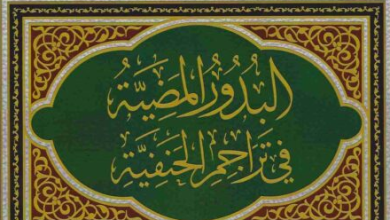How the Hanafi Madhhab spread through the Muslim lands
Shaykh Abdal Hayy al-Lucknawi (d. 1886 CE) mentioned the following anecdote from the 10th century scholar known as Shaykh Mahmūd b. Sulaymān al-Kafawī (d. 990 AH/1582 CE) as quoted from his Aʿlām al-Akhyār:
The knowledge of our eponym, Abū Hanīfa, was transmitted through his disciples to a vast number of countries. In fact, the school’s jurists are dispersed throughout a vast number of cities. For example, our colleagues from among the early Hanafīs (ashābunā al-mutaqaddimūn) were dispersed in Iraq, mashāyikh Balkh, mashāyikh Khurasān, mashāyikh Samarqand, mashāyikh Bukhāra, and other mashāyikh from Isbahān, Shirāz, Tūs, Zinjān, Hamadān, Istarabād, Bastām, Marghinān, Farghānā, Damaghān, and other provinces within the lands beyond the Oxus River (sic) such as Khurasān, Azarbayjān, Khwārazm, Ghazna, Karmān. Also, the school was spread in the lands of the Hind, and different provinces in Arab and non-Arab lands. All of these scholars spread the knowledge of Abū Hanīfa by dictating to students, memorization, and writing in the madhhab. Those Hanafīs were engaging in learning fiqh, ijtihad (legal reasoning), spreading the benefits of their knowledge, and writing. This system of transmitting knowledge remained this way over years and centuries. Then, God destined the coming of Chingis Khan (d. 1227) who chose war and murdered people, destroyed knowledge and countries. His children followed him on the same path. This resulted in the immigration of Hanafī jurists and their families, who survived this injustice, to Damascus, Aleppo, Egypt, and Anatolia. This led to the flourishing of Hanafī knowledge in these provinces. (al-Nāfiʿ al-Kabīr li Man Yutaliʿ al-Jāmiʿ al-Saghīr (Beirut: ʿĀlam al-Kutub, 1986),8. Quoted in We’re Not in Kufa Anymore: The Construction of Late Hanafism in the Early Modern Ottoman Empire, 16th – 19th Centuries CE, p. 25 by Dr. Samy Ayoub)






